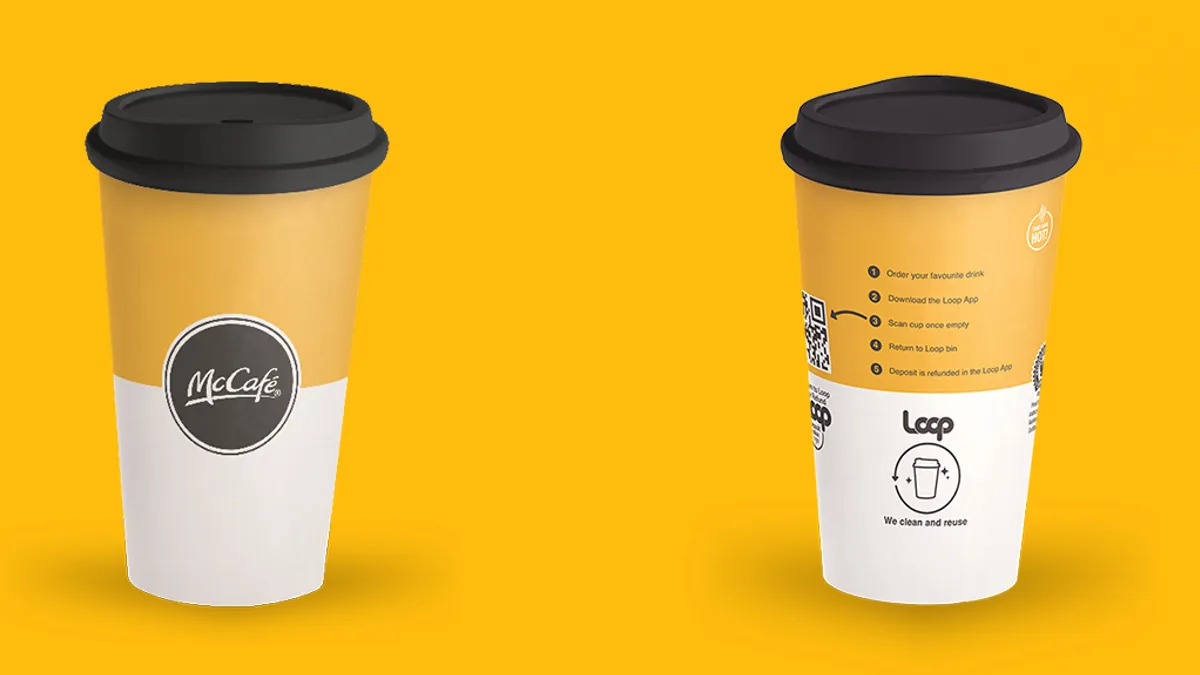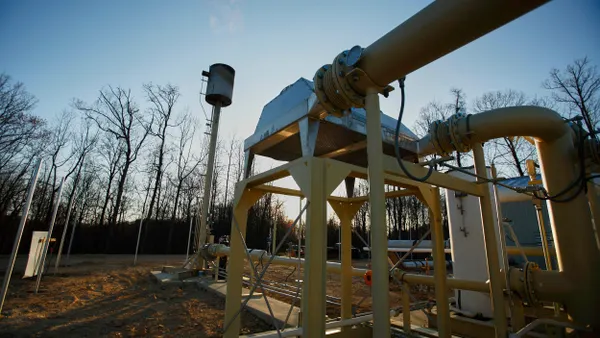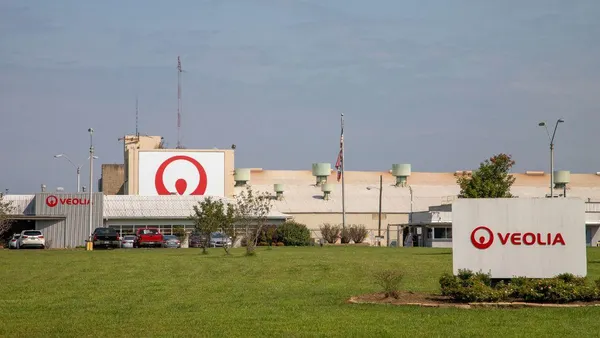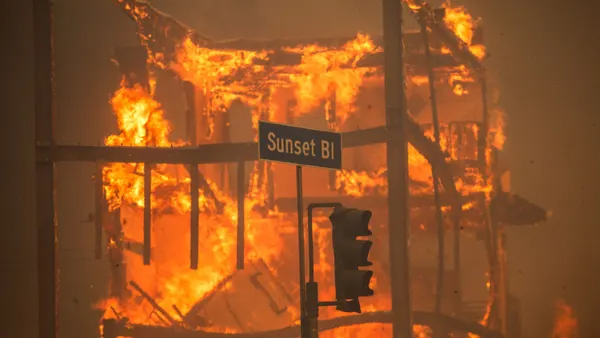Dive Brief:
- McDonald's announced on Wednesday it will be partnering with Loop, the circular economy venture from recycling company TerraCycle, to pilot reusable cups for its hot beverages in select locations across the U.K. starting in 2021.
- Customers participating in the program will pay a deposit for durable cups bearing unique scannable QR codes to track returns. Deposits are refunded when cups are brought back to incentivize a high return rate.
- The Loop trials are part of a larger emphasis from McDonald’s on circular packaging, which includes participation in the NextGen Cup Consortium, an initiative that has yielded circular solutions for the company in the past.
Dive Insight:
McDonald’s reusable cup trial in the U.K. will be the first example of the fledgling Loop program trying its hand outside the grocery sector. Until now, it has focused on providing e-commerce grocery delivery in reusable, refillable packaging in parts of the United States, the U.K., and France. A company spokesperson said Loop remains on track to continue expanding those efforts.
The partnership reflects the company’s propensity toward brand name partnerships, which stem from Loop’s need to increase the ubiquity of the service and achieve scale quickly. In a June interview, TerraCycle CEO Tom Szaky hinted at the future partnership without naming the company, and said his vision was for the restaurant’s locations to act as collection points for any type of container purchased from any of Loop’s programs. “When they put Loop everywhere, it's going to send a message," he said at the time.
“The goal in the partnership with McDonald's is to enable Loop in the restaurant category, which only strengthens the overall system,” confirmed a Loop spokesperson. “You can now buy your shampoo in reusable packaging at, say, Tesco and return it to McDonald's and [vice] versa with your Loop Coffee Cup.”
This isn’t the first time McDonald’s is implementing a circular solution for its beverages. In 2019, the company was a co-sponsor of the NextGen Cup Consortium, alongside other major players like Starbucks. One of the winners of this competition was a company called ReCup, whose cups were piloted at 30 McDonald's locations in Germany. Similar to Loop, ReCup was not strictly a McDonald’s solution, as customers could return their cups elsewhere, which the company said in a statement “makes it more convenient for our customers.”
Clarissa Morawski, CEO of the nonprofit ReLoop, which works to advance circular economy initiatives, said the program’s ability to ensure returns, and thus reuse, of its cups will be the ultimate determinant of success.
“For the 100 cups that they put out in the marketplace, how many are they getting back? And for any system to be in any way economically viable, you're talking about a lot of uses,” she said, stressing the importance of a high return rate. “Even 90% is a low return rate. Because for every time you're hitting 90%, that means one out of your 10 reusable, well-designed, smart assets has gone awry. It should be 98% or 99%.”
The decision to implement a reusable to-go cup pilot comes as many consumer-led reuse programs have been suspended in response to the pandemic. In its announcement, McDonald’s emphasized the selection of Loop as a partner specifically for the program’s attention to “cleanliness and safety standards,” a feature Szaky has been emphatic about in recent months.
“Loop's cleaning systems have been scientifically developed, in partnership with Ecolab, to sanitize each item, which means each cup is hygienically cleaned before each use, making it as safe and hygienic as single-use cups,” said the McDonald’s statement.
But the eye towards circularity may also reflect a deeper shift in the quick service world’s approach to sustainability, as Morawski noted recycling has always been a challenge for fast food companies.
“The quick serve sector has actually invested quite a bit of time and effort to try to get their patrons to separate their waste. Their customer base is not made up of the best recyclers and they're dealing with a somewhat heterogeneous mix of packaging materials, which often includes food waste," she said.
McDonald's said it chose the U.K. for this pilot because it had covered ground in developing recycling infrastructure in that market. No U.S. pilots have been announced to date.
“Almost all of our restaurants across the U.K. now have recycling units for hot and cold paper cups,” said a spokesperson. “We have helped to create over 4,000 collection points for paper cup recycling across the U.K. This partnership builds on our packaging and recycling strategy… Reusable packaging is one potential solution that we want to test as part of a broader suite of strategies and tools that will be needed to advance circular solutions and keep waste out of nature.”









